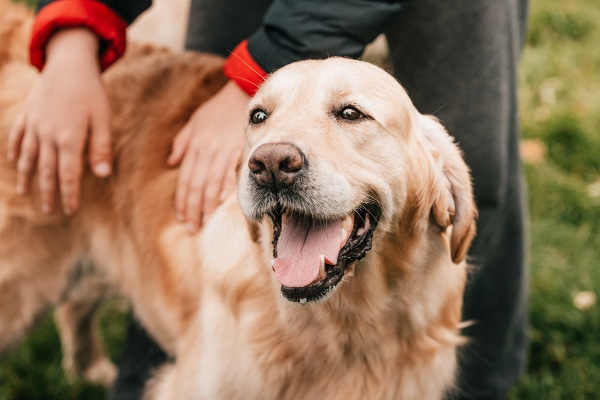If your dog is breathing fast while sleeping, it could be a sign of excitement, anxiety, or dreaming. Fast breathing in dogs during sleep is often normal and is typically associated with dreams or light sleep.
However, it’s essential to monitor your dog’s breathing patterns and consult a veterinarian if you notice any unusual or concerning symptoms. Dogs may experience rapid breathing while sleeping due to various reasons, such as dreams, physical activity during the day, or underlying health issues.
Understanding the potential causes and knowing when to seek professional guidance is crucial for your pet’s well-being. We will explore why dogs breathe fast while sleeping, when it could be a cause for concern, and how to ensure the best possible care for your furry friend.
Normal Sleep Patterns And Dog Breathing
Dog Breathing While Sleeping: It is normal for dogs to breathe fast while sleeping. Typical breathing rates for resting dogs range from 10-30 breaths per minute, which may increase during dreams or periods of excitement. Dogs go through stages of sleep, including REM (rapid eye movement) sleep where breathing may become irregular, and Non-REM sleep, characterized by a more steady breathing pattern. Comparing REM and Non-REM breathing rates, it is observed that during REM sleep, dogs’ breathing rates can resemble their wakeful state, whereas during Non-REM sleep, the breathing tends to be slower and more regular.
Unpacking Rapid Respiration Reasons
Heat and environmental factors: Rapid respiration in dogs while sleeping can be attributed to heat and environmental factors. Dogs may breathe fast during sleep when they are overheated, anxious, or stressed due to the temperature of their surroundings.
Dreaming during REM sleep: Another reason for rapid respiration in dogs while sleeping is dreaming during the REM (rapid eye movement) phase. Just like humans, dogs can experience vivid dreams during REM sleep, causing their breathing rate to increase temporarily.
Medical conditions affecting breathing: Certain medical conditions such as pulmonary disease, heart problems, or pain can also lead to rapid respiration in dogs while sleeping. It’s crucial to monitor any additional symptoms and consult a veterinarian if this behavior persists.
Stress, Anxiety, And Fast Breathing
Fast breathing in dogs during sleep can be a sign of stress or anxiety. Some signs that your dog may be stressed or anxious include excessive panting, yawning, and avoidance behaviors. These may all indicate that your dog is experiencing some form of stress or anxiety. When it comes to sleep, stress can affect your dog’s breathing patterns. Dogs may exhibit fast breathing during sleep if they are feeling anxious or stressed, which can be a cause for concern for pet owners. Therefore, it is important to pay attention to your dog’s behavior and look for signs of stress or anxiety that may be affecting their sleep breathing patterns.
Dog Breeds And Respiration Rates
Breed-specific breathing characteristics: Different dog breeds have varying respiration rates during sleep. Smaller breeds such as Chihuahuas and toy breeds tend to have faster breathing rates compared to larger breeds. This is due to their higher metabolism and smaller lung capacity. Meanwhile, brachycephalic breeds (e.g. Bulldogs, Pugs) are prone to respiratory challenges due to their shortened airways, leading to rapid breathing during sleep. Owners of these breeds should be mindful of their pets’ breathing patterns to ensure their well-being.
Monitoring Your Dog’s Nighttime Breath Rate
It’s essential to observe your dog’s nighttime breath rate. An average healthy dog typically breathes between 10 to 30 times per minute during sleep. If your dog’s breathing exceeds this range, consult a vet promptly.
Rapid, shallow breathing or sudden changes in breath rate could indicate health issues such as anxiety, pain, respiratory problems, or heart conditions. Keep a keen eye on any unusual patterns.
Use a timer to count breaths or place your hand on their chest to feel each breath. Alternatively, there are apps available for tracking breath rate. Regular monitoring can help in early detection of any abnormalities.
Immediate Steps For Sudden Onset
If your dog is breathing fast while sleeping, it’s important to remain calm and observe the situation closely. Create a quiet, soothing environment to help your dog relax and reduce stress. You can gently stroke your dog’s back and speak to them softly to provide comfort. Try to minimize any potential sources of anxiety such as loud noises or sudden movements. Focus on maintaining a peaceful atmosphere to help regulate your dog’s breathing.
If your dog’s fast breathing persists or if you notice any other concerning symptoms such as panting excessively, restlessness, or blue gums, it’s crucial to contact your veterinarian immediately. They will be able to assess your dog’s condition and provide the necessary medical attention if required. Monitoring your dog’s breathing and being attuned to any changes in their behavior is essential in recognizing potential health issues early on.
Preemptive Care And Management
Regular veterinary check-ups: Ensure your dog receives regular check-ups to monitor their respiratory health and identify any potential issues early on.
Exercise and diet for optimal breathing: Encourage regular exercise and provide a balanced diet to maintain your dog’s overall health, thereby supporting their respiratory function.
Stress reduction techniques and environments: Creating a calm and stress-free environment can help to minimize rapid breathing in dogs while sleeping, ultimately promoting better respiratory well-being.

Credit: toegrips.com
Long-term Health Implications
Many pet owners may wonder why their dog breathes quickly while sleeping, and this behavior can potentially be linked to chronic health conditions. Fast breathing while sleeping in dogs could be indicative of underlying issues such as heart or lung problems. This type of breathing pattern can be concerning as it may suggest stress, pain, or discomfort. Moreover, long-term rapid breathing in dogs could lead to serious health implications, including chronic conditions. Monitoring and managing your dog’s heart and lung health is vital in order to address any potential issues early on and ensure a better quality of life for your beloved pet.
Frequently Asked Questions On Why Is My Dog Breathing So Fast While Sleeping
Why Does My Dog Breathe Fast While Sleeping?
Fast breathing in a sleeping dog is normal and often linked with dreams. It’s similar to human REM sleep. If there are no other concerning symptoms, it’s likely nothing to worry about. However, if the fast breathing continues when awake or is accompanied by other symptoms, consult your vet.
Should I Wake My Dog If It’s Breathing Fast While Sleeping?
It’s generally best not to wake a dog that’s fast asleep and breathing quickly. As long as there are no other concerning symptoms present, it’s likely the dog is dreaming. Waking them suddenly can cause confusion and stress. If you have concerns, monitor their breathing and consult your vet if needed.
What Should I Do If My Dog’s Fast Breathing Seems Unusual?
If your dog’s fast breathing during sleep seems unusual, it’s best to monitor them. Look out for any other concerning symptoms, such as coughing, wheezing, or labored breathing when awake. If you notice any worrying signs or if the fast breathing persists, it’s best to seek advice from a veterinarian.
Conclusion
So, if you notice your dog breathing fast while sleeping, it’s important to pay attention to potential underlying health issues. Remember, fast breathing could be a sign of anxiety or pain. It’s crucial to consult with a vet to ensure your furry friend’s well-being and address any concerns promptly.
Taking proactive steps can ensure a happy and healthy pup!



